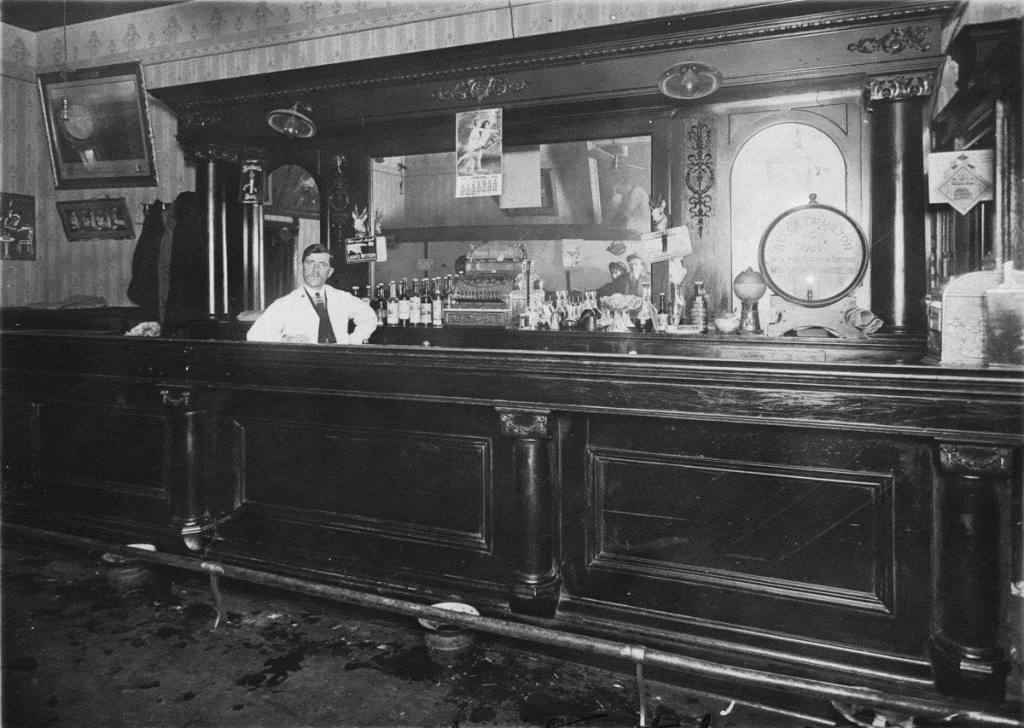The 18th Amendment to the United States Constitution prohibiting the production, importation, transportation, and sale of alcoholic beverages, was ratified in 1920. It was a culmination of decades of progressive campaigns to reform society, abolish alcoholism and family violence, diminish crime, and crack down on saloon-based corruption. It became one of the most hotly debated political movements in the US and, as a crusade, largely failed.
Though the Civil War temporarily sidelined reform campaigns, temperance movements had been gaining ground since the 1850s. The tipping point for widespread national support of prohibition was the onset of World War I. When the US declared war on Germany in 1917, new justifications for prohibition arose, including the argument that grain, which would otherwise go toward the production of alcohol, should be repurposed for the war effort. President Wilson agreed to support a constitutional amendment, and the legislative ball was set rolling by the end of the year.
National Prohibition was finally implemented in 1920, but Utah and many other states had introduced “dry” legislation on the state level years before. Influenced by political platforms from both major parties, Utah’s government had passed its “dry bill,” as it was called, in February 1917. It went into effect locally on August 1, 1917.
The political climate in the lead-up to Utah’s bill was heated. Park City alone was home to twenty saloons and bars and alcohol was a prevalent part of life in the mining town. Both the Democratic and Republican parties had popular factions that supported Prohibition, but Park City worried about a loss of an estimated $22,000 annually to the city budget, money that normally came from the sale of liquor licenses. Anti-prohibition petitions were passed through town and “freely signed.”

Credit: Park City Historical Society and Museum, Scholl Digital Collection
Organizations such as the Women’s Christian Temperance Union (WCTU) fought hard for Prohibition, on national and local levels. Park City had local temperance societies, and Park Record editor Sam Raddon (a Republican) often published comments supportive of “drys.”
In February 1917, when a short-lived political standoff almost prevented the passage of the statewide Prohibition bill, the Record quipped that “election to office seems to kill all sense of duty in some men.” While Raddon and others didn’t wish to see hardworking businessmen fail, they encouraged saloon owners to operate “good, clean business” after the bill’s passage. Throughout 1917, many saloon owners repurposed their bars as pool halls and “soft drink parlors,” most of which nonetheless continued to sell alcohol after Prohibition went into effect.
Even though Prohibition passed in Utah, the WCTU and others did not view their work as finished. As Mrs. C.A. Walker, president of the Utah chapter, wrote to local papers, “to develop a higher civic conscience and a greater sense of moral responsibility…among all classes is perhaps the most important work before us.”
Join us in this column over the next couple of weeks for a look at Prohibition in Park City